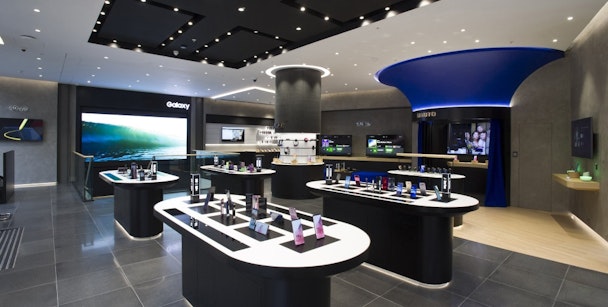A hint of hope for the revival of the high street
As a nation of shopkeepers, the local high street in market towns and cities across the country has for several centuries been at the heart of communities. So the prospect that this core British entity is in danger of vanishing is of course worrying, not only for nostalgic reasons but also for the potential discord that follows.

Gekko question whether there's any hope left for the rise of the UK highstreet.
As the places that were once a hub of activity become increasingly forlorn, the desire and reasons to visit, as well as the appeal, diminishes. Without a haven for shopping, leisure and play, the opportunity for community, camaraderie and engagement evaporates.
However, history tells us that the high street has been through many transitions from hubs, meeting places and shopping in the 1800’s to retail mania in the 1990’s where people went shopping and consumerism went into overdrive. And this is where we started to see an influx of chain stores, town centres losing their identity and individuality and the closing of many community leisure facilities like cinemas and theatres. As the 90’s drew to a close and the internet became omnipresent, we entered the troublesome 2000’s – with high streets in peril and ever growing numbers of people shopping online (19% of all retail sales in December 2019), plus those going to out of town retail parks, offering larger format stores and free parking.
While this may sound very downbeat and in my twenty-five odd years in retail marketing, the last couple have really demonstrated the worse decline in the high street I’ve ever seen, but I also think it’s a huge opportunity. We should be optimistic about the future of the high street and use this period of flux to re-look at our community spaces and make them better for today and the next decade. The issue is high on the national agenda for both people and politicians and that was evident in January with two prime time programmes dedicated to ‘saving the high street’ - for those that didn’t see them, worth a watch on ITV (Tonight – High streets: End of the road? – 16th January 2020) and BBC (Panorama – How to save the high street – 13th January 2020).
Strangely enough, I couldn’t help but come away from watching the programmes excited to hear sensible people talk about workable strategies that can breathe life back into our high streets. And the message came through loud and clear that this new era of ‘local’ needs to be a combination of retail, residential, enterprise, experience and culture – a rich dynamic town centre that will give these spaces a purpose, putting people back in and in turn increasing footfall which is down 20% since 2009.
For many reasons I don’t think people are short of ideas. The desire to consume local produce with a provenance, whether for environmental or health reasons, is becoming essential for many and as such we’re seeing more farmer’s markets. In addition, local festivals and pop-up experiences to draw people in, are seeing a boom. On a different theme, there was a wonderful example in the Panorama programme about how Age Concern had taken over large vacated retail premise in Westcliff On Sea, turning it into a community hub – and not just a free one. Dance classes, cafes, care services and a day centre it was a hive of activity for a generation of people most in need of it. All this in turn drives much needed footfall to the high street.
But the more grandiose regeneration isn’t easy but it’s a necessity. It’s a complicated web of the marriage of public and private sector money and the right combination of services that will attract people of all ages for work and leisure. Through people teeming with ideas, the Government must take responsibility for changing their business rates policies so that we can all re-imagine and re-live the beauty that’s our high street and offer some hope for the future. This is especially relevant to the North of England where voters believed this government when it said it will create change and opportunity.
Daniel Todaro, managing director at Gekko.
Content by The Drum Network member:

Gekko
Gekko is a full service field marketing agency, specialised in connecting brands with consumers in retail throughout the UK and Ireland.
Gekko are experts...
